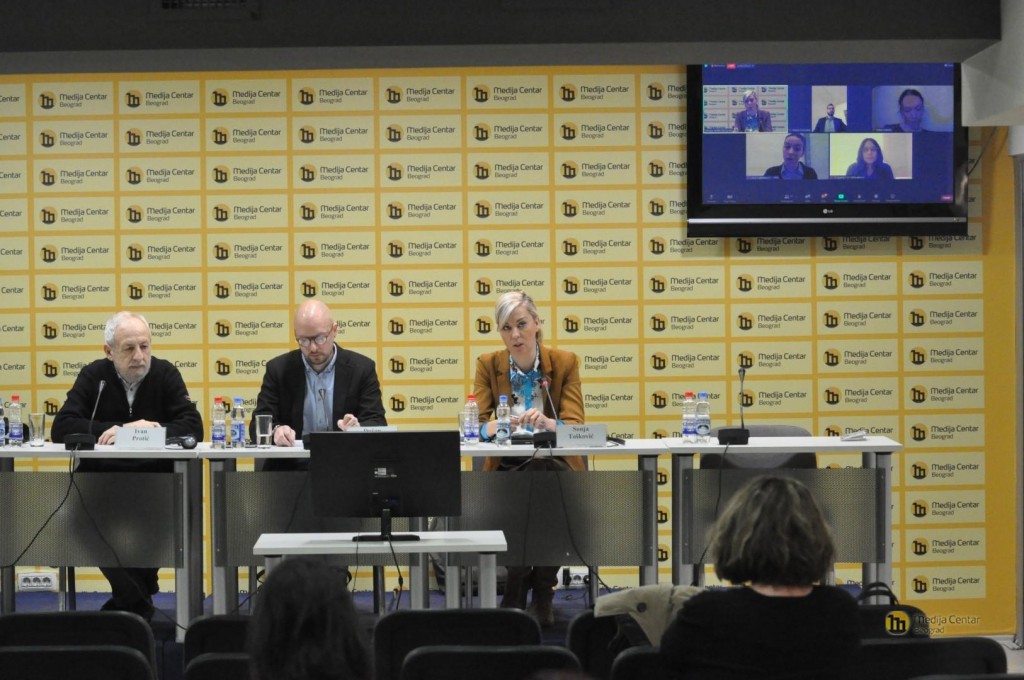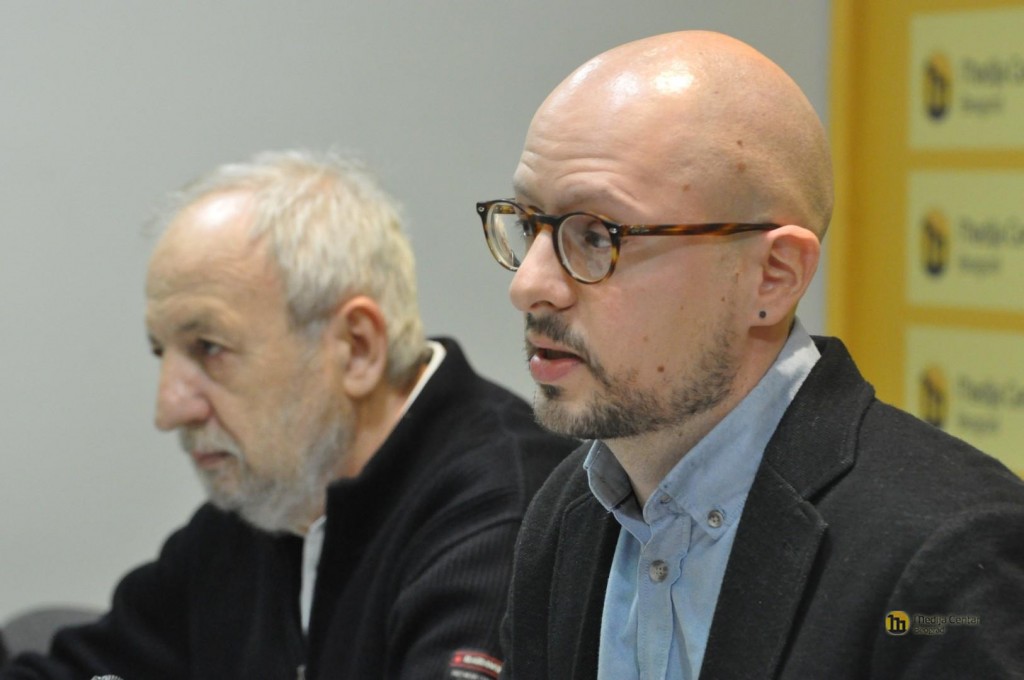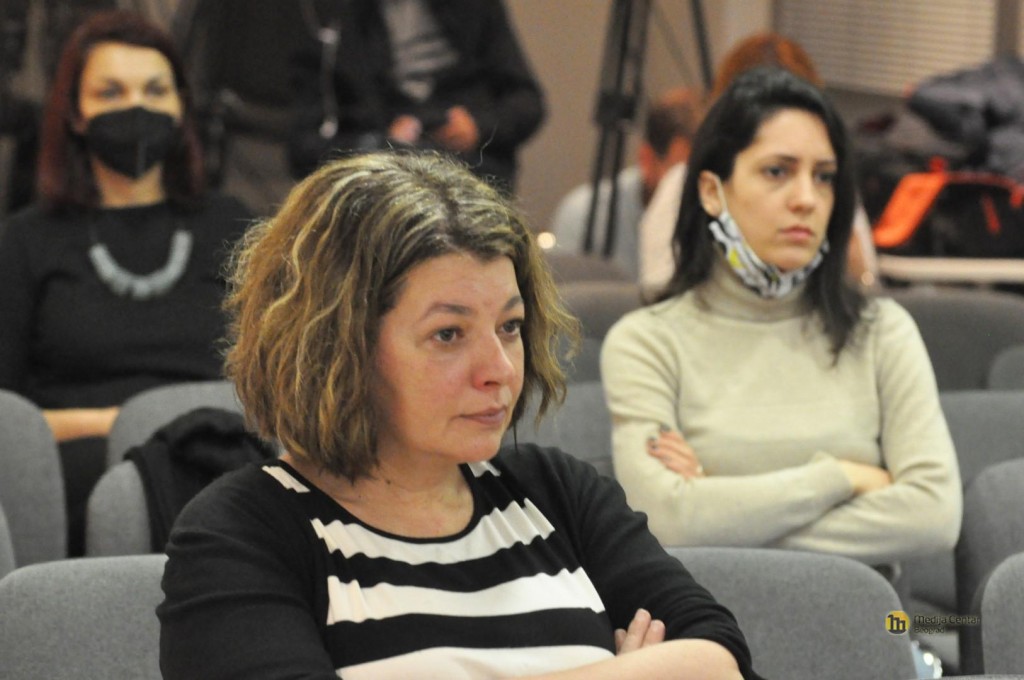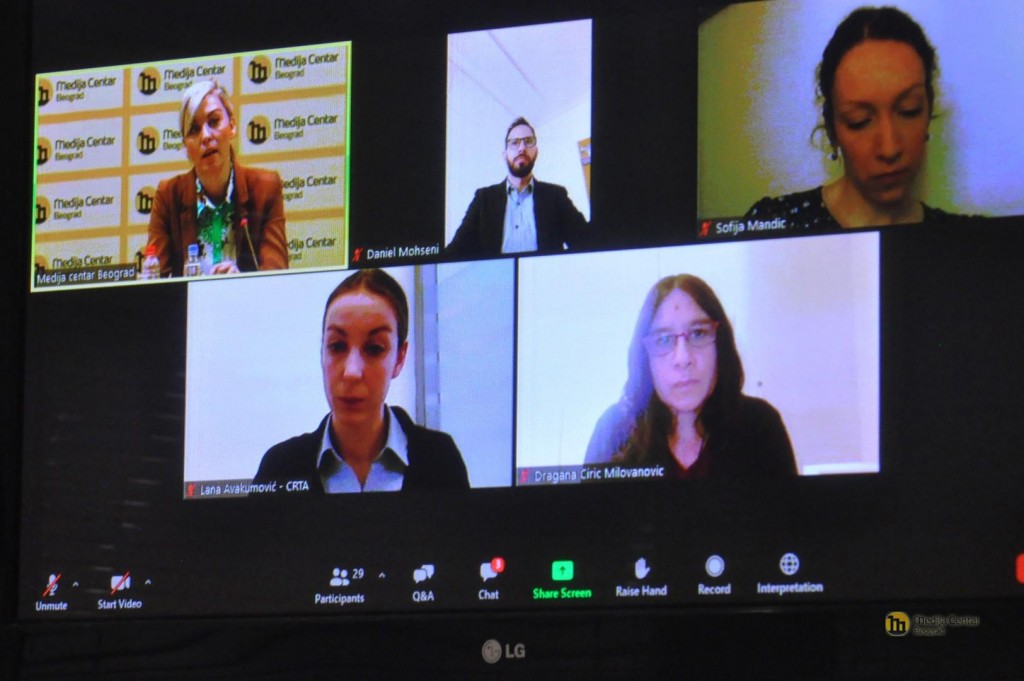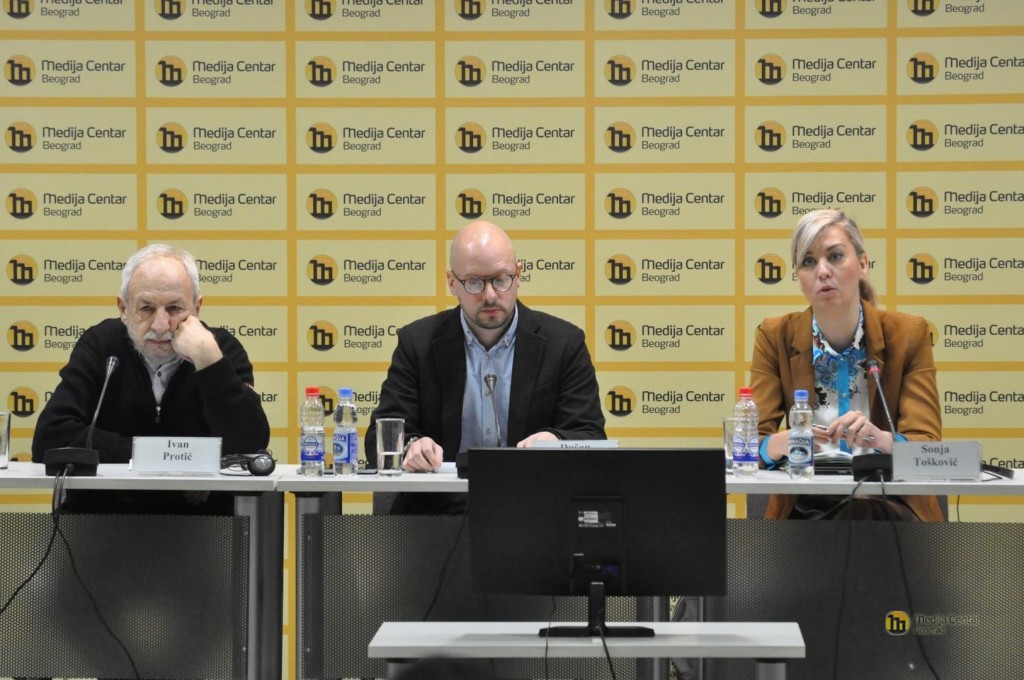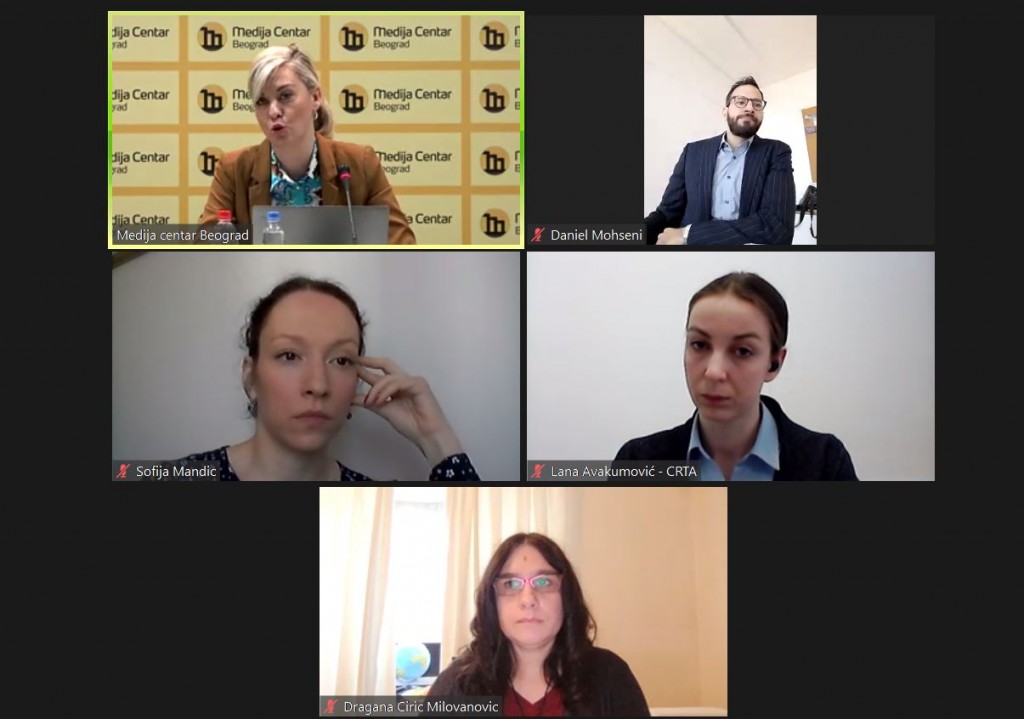The Belgrade Centre for Human Rights presented its latest annual report Human Rights in Serbia 2021 in the Belgrade Media Center on 3 March. The Report and its main findings were discussed by Report Editor Dušan Pokuševski, Report co-author Ivan Protić, BCHR Executive Director Sonja Tošković, Sofija Mandić (CEPRIS), Lana Avakumović (CRTA) and Dragana Milovanović (Disability Rights International, DRI), as well as Political Counsellor at the German Embassy in Belgrade Daniel Mohseni.
Environmental protests were the main events that marked the year behind us, said the Report Editor, Dušan Pokuševski. The spate of protests, from small, local ones to large-scale civic demonstrations across the country, show that Serbia’s citizens are “aware of their human rights and know how to fight for them,” he said, adding that no-one had been called to account for the violence that occurred during last year’s protests.
“Such impunity has become a trend, if we recall the July 2020 protests, giving rise to a serious question: Who is to protect the citizens and how?” said Pokuševski.
CSOs and human rights activists were often targeted by pro-regime media and MPs and the physical safety of some human rights champions was at risk in 2021.
BCHR Executive Director Sonja Tošković said that the ongoing pandemic continued impinging on public health and the status of medical professionals in 2021.
“The impression that the executive dominated over other branches prevailed in 2021. There were no public debates, at least not meaningful ones. A lot of laws were adopted or amended, from the Police Act to the Criminal Code. As opposed to 2020, when economic rights were targeted, 2021 was marked by attempts to stifle political and civil rights,” Tošković said. On the bright side, some headway was made in the field of anti-discrimination, where a large share of civil sector’s comments were upheld, she noted.
“The Anti-Discrimination Act has been improved and it’s quite good. However, the Act on Same-Sex Unions, criticised by the ruling officials, did not end up in parliament. Surprisingly, the Prime Minister, who has publicly declared that she is a lesbian and has rights others don’t, did not comment the draft law at all,” said Tošković.
Tošković also said that 8% of the children were living in absolute poverty and another 24% of them on the poverty line and that over half of girls from the Roma community married before they turned 18. “Children are victims of online abuse, domestic violence, violence in school,” she said, adding that persons with disabilities were discriminated against on multiple grounds, but that women’s activism has awoken and that women have again mustered the courage to report their abusers. Tošković said that the situation of Roma had not improved during the reporting period, that 20% of the residents of Roma settlements had no or irregular access to drinking water and that 14% of them had no or irregular access to electricity.
One of the authors of the Report, journalist Ivan Protić said that the situation in the media sphere continued deteriorating in 2021, a trend that has been present for a decade now.
“True, there were fewer physical assaults than in 2020, but everything else is negative. The Government denied all criticisms. The Prime Minister even said that “journalists are at greater risk in some EU countries than in Serbia”. The fact that the trials for the assassination of Slavko Ćuruvija and the arson of Milan Jovanović’s house are still pending, while the trials for the murders of Milan Panić and Dada Vujasinović have not even begun yet, is the gangrene of the Serbian media scene,” Protić noted.
He said that a “genuine crusade” was waged against independent reporters and media by the Serbian President, parliament and others supporting the regime, and that the MPs mentioned independent journalists and media in a negative context 199 times in the April-June 2021 period alone.
“The pro-regime media played a major role. Press Council data show that they violated the Press Code of Conduct 50 times a day in June, August and September 2021. Pro-government outlets are rewarded through co-funding of media content. In Niš, as many as 80% of the 69 million dinars set aside for media was allocated to outlets toeing the government line, including the one owned by the son of the intelligence agency director. A Pink journalist now works as a Media Adviser of the Grocka Municipality and earns 125,000 dinars a month,” Protić said.
Sofija Mandić of CEPRIS said that 2021 was also marked by the process of amending the constitutional provisions on the judiciary, the parliament’s adoption of the amendments in late 2021 and their endorsement at a referendum in early 2022.
“We also had the appointment of new members of the High Judicial Council and State Prosecutorial Council and the election of the Chief Public Prosecutor and the President of the Supreme Court of Cassation,” Mandić said, qualifying the processes as non-transparent and conducted in a climate characterised by in-house elections, short deadlines and pressures by the Ministry of Justice.
Lana Avakumović of CRTA said that 2021 was marked by the marginalisation of the citizens and disregard of public interests during the election processes and the collapse of democracy. In her opinion, the parliament was abused for pursuing narrow political purposes and dealing with those critical of the government, such as NGOs, media and individual judges.
” As many as 94% of the comments of the opposition in the parliament were negative, while not a bad word was heard against President Vučić,” said Avakumović, noting that ruling parties took up 94% of airtime on prime-time news on national TV stations.
Dragana Ćirić of Disability Rights International (DRI), the organisation that published its report “Serbia’s Forgotten Children” about the neglect of institutionalised children in June 2021, warned that the pandemic has disproportionately affected persons with disabilities living in residential institutions.
She said that DRI had failed to obtain data on deaths of the institutions’ residents during the pandemic. “Serbia jeopardised the lives of thousands of persons with disabilities. They are one of the groups at greatest risk of poverty,” said Ćirić.
The Human Rights in Serbia 2021 Report is available HERE.
The research, translation and publication of the Report ’Human Rights in Serbia 2021’ were supported by the Ministry of Foreign Affairs of the Federal Republic of Germany through the Embassy of the Federal Republic of Germany in Belgrade. The report does not necessarily reflect the official position of the Ministry of Foreign Affairs of the Federal Republic of Germany.
Watch the presentation of the 2021 Human Rights Report at the following link:







